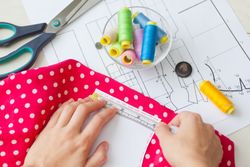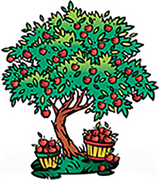
Of all the hobbies you could adopt, sewing is one of the most practical and timeless. But before you break out the fabric and start creating, you’ll need a fully stocked sewing kit. The following guide highlights the most important items every novice sewer should have.
Tools All Sewers Should Keep in Their Kits
1. Scissors
Durable, high-quality scissors and rotary cutters are crucial for clean cuts. For cutting loose threads, a small pair of craft scissors will suffice. If you’re working with a delicate fabric, opt for pinking shears or rotary cutters — these cut in a zigzag, making the edges less likely to fray and unravel. For all other basic projects, use a pair of standard fabric scissors.
2. Threads
Every sewing kit — professional or beginner — should be equipped with a variety of thread options. Ideally, include one spool of each color in the rainbow. That way, no matter what project you’re working on, you will always have the necessary material to make an invisible stitch.
3. Needles
Beyond the basic needle, keep a variety of sizes and types so you’re ready to sew all kinds of threads and fabrics. For example, use short darners for thicker threads like cotton or yarn; leather needles for piercing thick fabrics; cross stitch needles for delicate, intricate work; and beading needles for adding a bit of sparkle to your project.
If you’re interested in taking up sewing as a hobby, the first step is to put together a kit. For all your tool and fabric needs, turn to the helpful team at Appletree Quilting Center in Columbia, MO. Since 1985, they have helped everyone from novice sewers to long-time professionals learn the skills and find the materials they need. Visit their website to view the calendar of upcoming events, and call (573) 446-2655 to discuss your first project with them today.
About the Business
Have a question? Ask the experts!
Send your question

